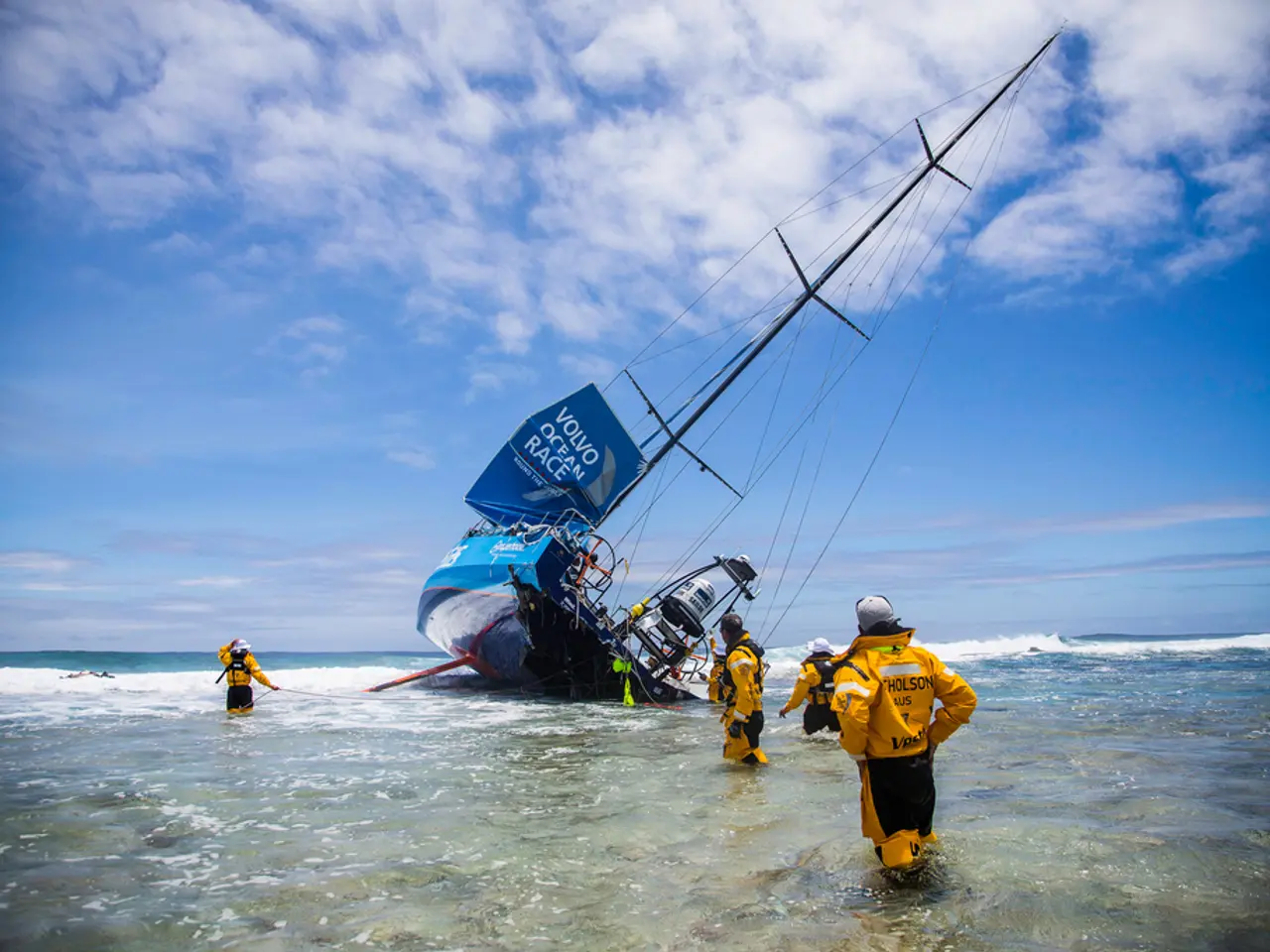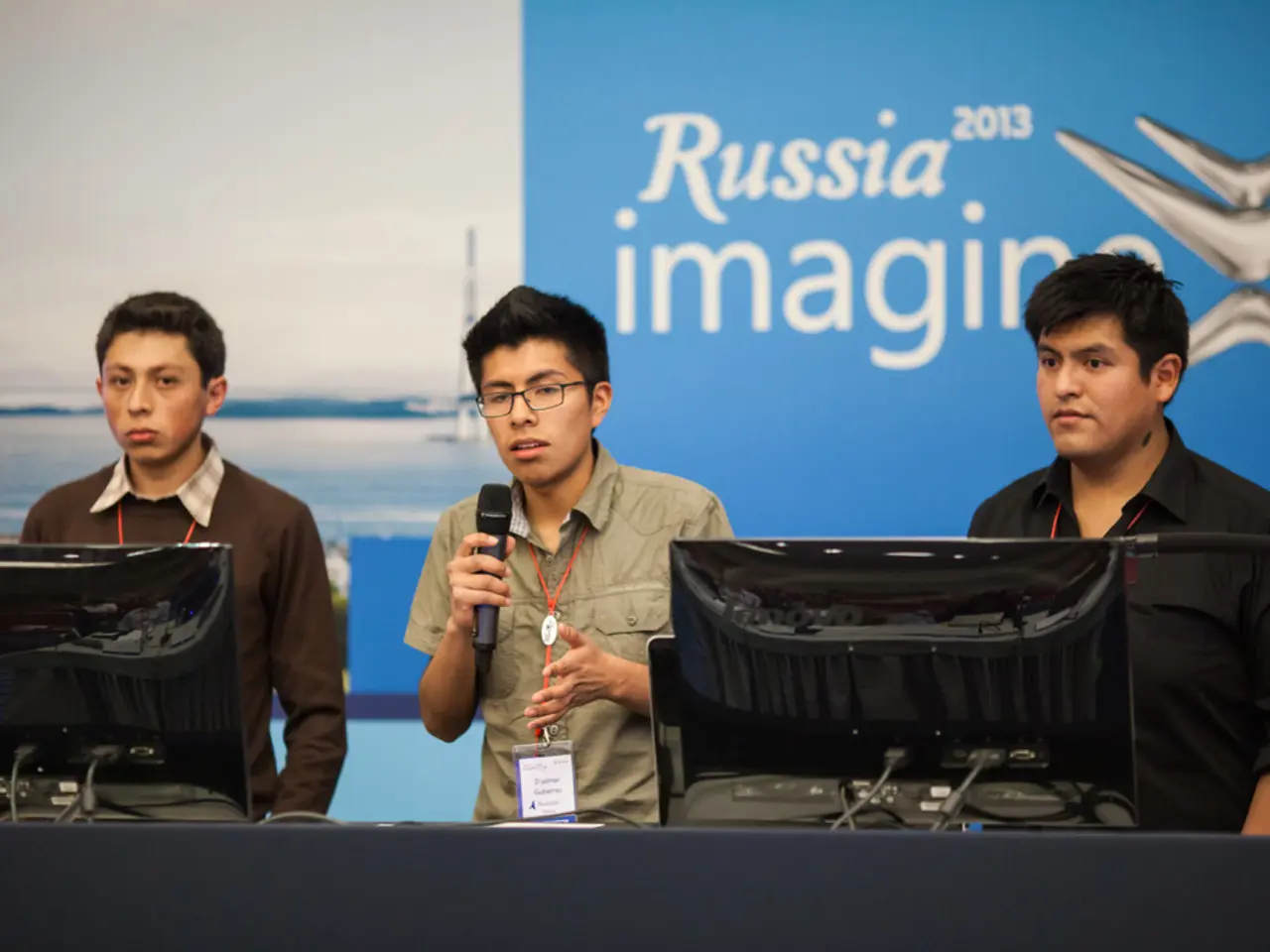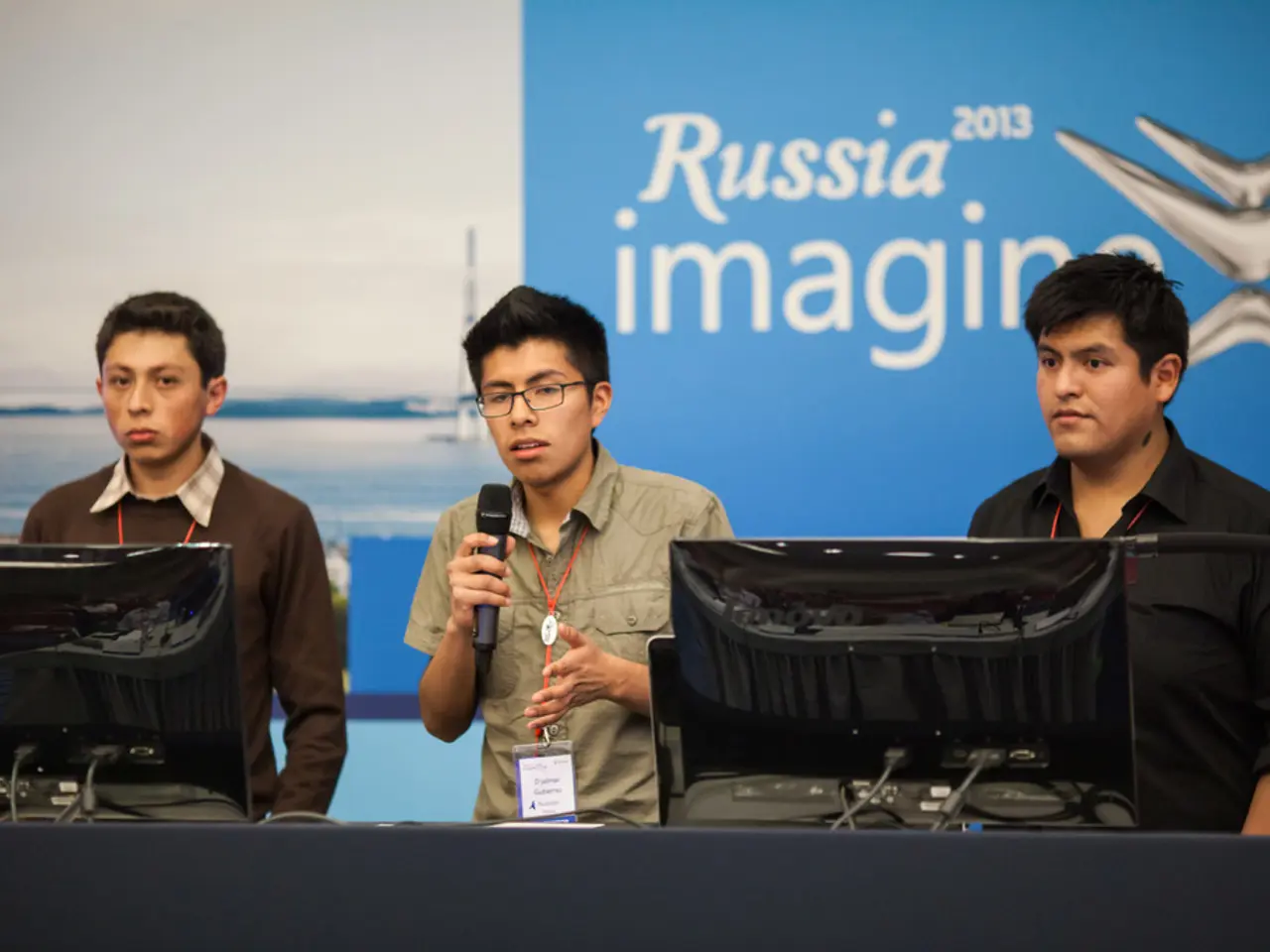Ongoing Search for Missing Fishermen Near Bali Shores
In the wake of a tragic ferry accident in the Bali Strait, Indonesia has taken significant steps to bolster maritime safety and labour protections within the sector. The ferry, carrying 65 passengers and crew members, sank shortly after departing from a port on the neighboring island of Java, leaving 29 people unaccounted for and causing widespread concern.
The ferry accident occurred near the Indonesian island of Bali, with the ship reportedly capsizing as a result of the trucks inside sliding to one side due to enormous waves. This incident has once again brought attention to the issue of maritime safety in Indonesia, a country with a history of ferry accidents caused by poor maintenance, overloading, and unpredictable weather.
In response to the accident, the Bali provincial government has issued new regulations aimed at protecting maritime laborers, addressing ongoing concerns about low wages, harsh working conditions, and inadequate social welfare access for fishery workers and vessel crews. These regulations include the creation of a regional forum secretariat for 2025–2028 to coordinate policy and safety efforts, with support from the Ministry of Marine Affairs and Fisheries.
At the national level, Indonesia is committing to ratify the International Labour Organization (ILO) Convention No.188 on work in fishing, which will reinforce protections for fishing crews, including aspects of maritime safety, fair compensation, proper contracts, and insurance coverage.
Moreover, the 2024 Third Amendment to Indonesia’s Shipping Law has dissolved the Indonesian Sea and Coast Guard, transferring maritime safety responsibilities to the Ministry of Transportation. This restructuring is aimed at better enforcement and coordination of maritime safety regulations.
Indonesia is also advancing maritime infrastructure, such as the new Bali Maritime Tourism Hub with international-standard facilities, which may contribute indirectly to overall maritime safety improvements.
The search and rescue efforts for the missing passengers and crew members are ongoing, with ships, boats, specialized rescue divers, and helicopters involved in the operation. As of now, six bodies have been recovered, and thirty people have survived the accident. Bejo Santoso, a survivor, stated that the ship sank very quickly, within less than five minutes after tilting heavily to the left and unable to right itself due to strong waves.
Despite the ongoing search and rescue efforts, no trace has been found of 29 people. Santoso also contradicted earlier reports, stating that a leak in the engine room was not responsible for the accident. Passengers did not receive instructions from the crew before jumping into the water, he added.
The accident has once again highlighted the urgent need for improved maritime safety in Indonesia. The Indonesian authorities' recent and ongoing efforts to enhance maritime safety and labour protections, including the new regulations, legal restructurings, and infrastructure development, are a positive step towards ensuring safer and better-regulated maritime operations in the Bali region and beyond. The search and rescue operation will continue for at least seven days, offering hope for the missing passengers and their families.
- Other Asian countries are monitoring Indonesia's response to the ferry accident, as ongoing war-and-conflicts in the region have led to an increase in migration, making maritime safety a critical general-news issue.
- In the face of mounting public outrage and criticism from politicians, the Indonesian government has pledged to address not just maritime safety, but also crime-and-justice, by improving investigative measures related to car-accidents and fires.
- The tragic ferry accident has sparked debates in the realm of politics, with some members advocating for stricter policy-and-legislation to prevent future accidents, while others argue for increased focus on weather-forecasting and auto-racing safety to reduce overall accident rates.
- As the search and rescue efforts continue, the Indonesian media is covering the incident extensively, focusing not only on the ferry accident but also on the broader effects of the tragedy, such as its impact on tourism and the economy.
- A separate debate has emerged within the field of sports, with racing enthusiasts and auto-racing experts discussing the potential implementation of safety measures inspired by the ferry accident in the world of grand-prix racing.
- In light of the ferry accident, international organizations are offering their support to Indonesia, with the World Meteorological Organization (WMO) expressing its readiness to collaborate on weather-forecasting technology and best practices to improve maritime safety.
- The Indonesian government's efforts to enhance maritime safety have not gone unnoticed by the International Maritime Organization (IMO), as it has commended the initiatives, urging other nations with a history of ferry accidents to follow Indonesia's example.
- In response to the ferry accident, various non-governmental organizations (NGOs) are calling for increased transparency and accountability in Indonesia's policy-and-legislation process, advocating for public participation and cooperation in ensuring the safety of all maritime laborers and passengers.








